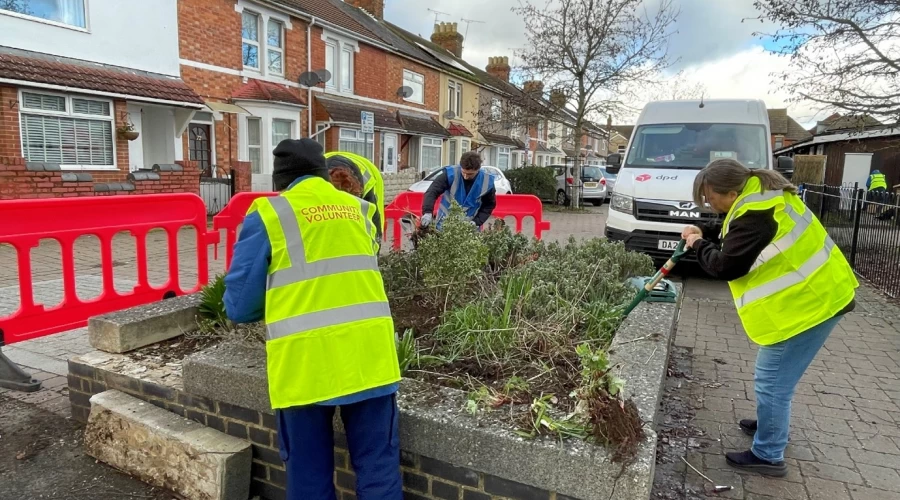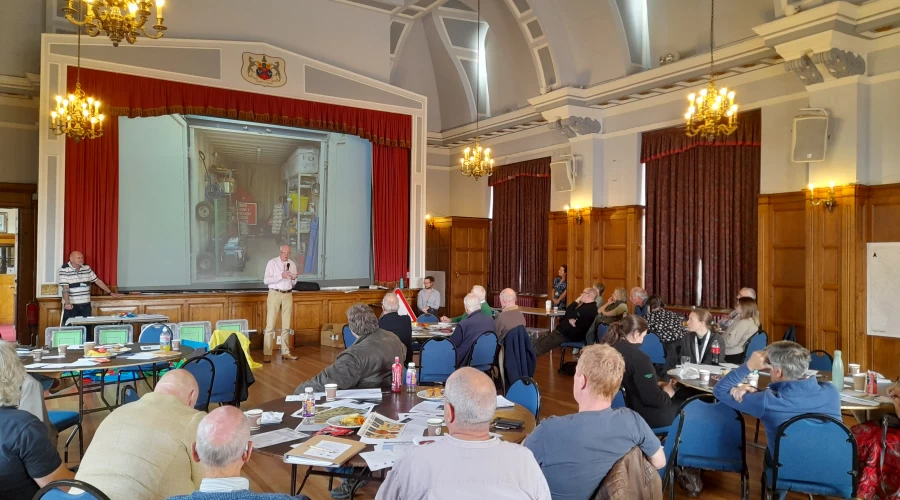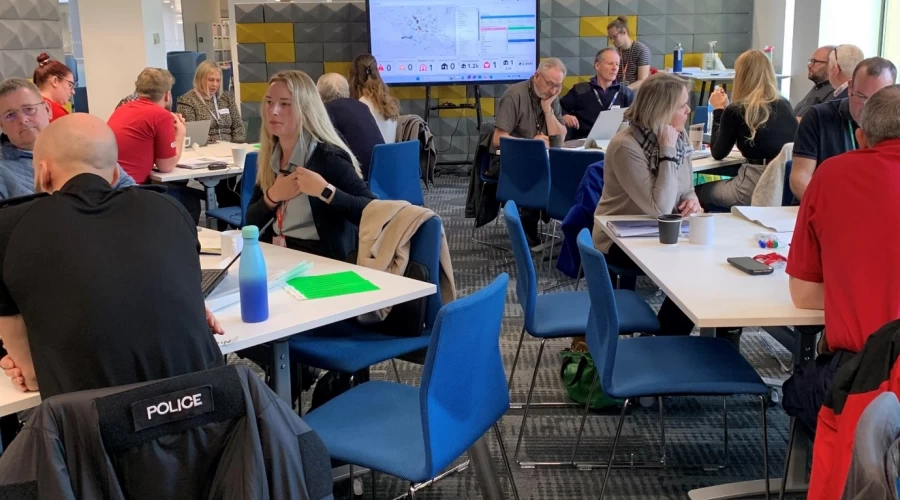To Peer or not to Peer that is the question?

In 2017, two neighbouring LRFs, though in different regions, undertook a Peer Review. Hampshire and Isle of Wight LRF and Wiltshire and Swindon LRF spent some time looking at each other’s processes and surveying members, attending each other’s meetings and presented final observations to their LRF Executive Groups. It was a helpful snapshot that made both LRFs feel confident they were in a good place, and some small tweaks to arrangements were made.
A great deal has happened between 2017 and 2024, not least the pandemic, and some significant major incidents in both areas including the novichok attacks in Salisbury and Amesbury in 2018. A massive change has also been the funding from The Ministry of Housing Communities and Local Government (MHCLG). Something neither LRF had expected in 2017, our 2017 selves could not have imagined the opportunities the LRF Funding Programme has given us. Both LRF Chairs wanted to see how the partnerships had fared over that period and kickstarted another Peer Review. Interestingly, over that time both LRFs had moved from a Chief Constable Chair to another organisation.
We are the LRF Managers for both areas, (though Paul’s is in a joint post) and we did the bulk of the work to draw together the observations for the Peer Review. We’re taking this opportunity to talk through the process, and what we learned, as well as touching on some of the findings, which are likely to be common to other LRF areas too.
Luckily, we have a really good working relationship. Paul started in WSLRF in 2010, and Laura in 2011. In the 13 years we have worked in neighbouring LRFs we have constantly sought each other’s advice and wise counsel, starting with planning for the Olympic Torch Relay. Coincidentally, since 2017, we have also both survived cancers, and provided moral support to each other during those difficult times. It is difficult for others to replicate a 13-year working relationship and friendship, including through adversity – but undertaking a Peer Review with someone you know, trust and can work with is a significant help.
Despite having a close working relationship, we both bring different backgrounds and skills to our joint work, which has massively helped too. Paul comes from a Police background, including significant partnership working and operational experience; Laura comes from a public sector partnership background with experience in academia.
Another advantage of the two LRFs in comparison, is we are quite similar. Despite differences in size and risks, both LRFs are structured almost exactly the same, with a small Secretariat, similar governance structures and both work using a twice monthly joint working day model known as Working on Weekdays in Wiltshire and Working on Tuesdays in Hampshire. It is advantageous to look to partner with another LRF of similar structure because it allows for more accurate comparisons rather than being explained by structural differences.
Because we had previously undertaken a Peer Review, the first step was to look back at how we did it, the seven years between felt quite a long time. There were some critical aspects that we wanted to keep, and we had seen value from, including a partnership wide survey, and equivalent meetings / chairs observing each other’s meetings.

The strength of a Peer Review is hearing the honest voices of people in our partnerships. An addition from 2017 to 2024 was going beyond the leads of groups and putting more people in touch with each other. We had a fairly simple set of questions and utilised MS Teams for short hour long discussions. As well as forming some of the most in-depth observations of the Peer Review, this has also formed a number of professional contacts between peers across that regional border.
Though we had experience of our previous Peer Review, there is no universal template for an LRF Peer Review. However, Peer Review has been promoted as an aspect of the Government’s Stronger LRFs; neither of our LRFs are participating in Stronger LRF Pilot. The elements we incorporated into the Terms of Reference, and formed the research were:
Survey – to both LRFs
Self-Assessment – using Role of LRFs and Resilience Standards (Government Guidance)
Review of Key Documentation – Terms of Reference, plan lists, information held on ResilienceDirect (a shared IT platform across partner agencies)
Peer Review meetings - between key partners, one-to-ones with equivalent LRF roles, one-to-ones with equivalent organisations talking to each other.
Observations of partnership meetings – in person and virtual
Literature Review – including learning from Covid
This was a significant piece of work and from the LRF Chairs writing to each other in June 2023, we worked very hard to compile and collate all this data by January 2024 (seven months). Even after collation there was more work to do. We did this by physically collocating (not MS Teams!) to write up the Final Report and prepare the respective presentations.

This research created a huge amount of information. For us it was about 6 full days of review, following the seven months of gathering. Fortunately, we both have spaces which are conducive to spending time together essentially locked in a room typing on a big screen, and in Hampshire we were able to collocate in Bishops Waltham which has the advantage of quite nice coffee shops!
So, after all this time, what did we achieve?
Both LRF Executives have been assured that we are in a good place as partnerships, seeking to achieve for our communities and doing the best we can. We did find significant pressures on partners which needed to be aired, and this was common across both LRFs.
We felt it was important the Peer Review Final Report focused on observations, rather than actions. This allows the respective LRF Executive Groups to consider and take forward their own recommendations.
Paul presented the observations to HIOWLRF Executive Group in March 2024, and Laura presented to WSLRF Executive Group in April 2024. There was a huge advantage in us presenting the observations to the other LRF, which gave a level of objectivity, including hearing that the LRFs were in a good place. This approach provided equity of both LRFs feeding back and a level of objectivity.
WSLRF has already started considering the Peer Review, including an Executive Group workshop in June 2024.
We both found the experience rewarding, and enjoyed undertaking it, despite the challenging timescales. For anyone undertaking a Peer Review, our key piece of learning is that it will take time and you need partners who are willing to talk to you honestly about what they think. You don’t have to do all the aspects we covered, just the survey or just a limited number of one-to-ones will give excellent information to determine where you are as a partnership.
The key element for both LRFs has been the catalyst for reflection, for thinking about the partnership in its own right and recommitting to improving.
It will come as no surprise that the key findings across both LRFs were twofold. Firstly, partners have never been under the fiscal pressure they are now, all public sector partners have financial challenges and they all voiced these during the Peer Review. That pressure directly reduces the capacity and resource of partners into LRFs, and across both LRFs this was described as a stretch, which we reflected may eventually break. Secondly, the ‘resilience landscape’ has never been more demanding, in terms of response and expectations. It is recognised that this is balanced against the Government’s welcome LRF Funding Programme which has made discernible differences in both LRFs, and we are sure across all funded LRFs.



